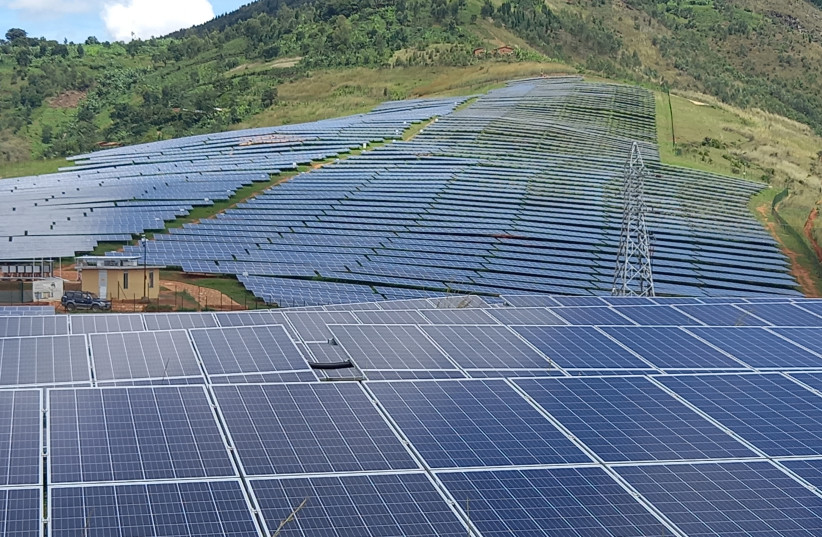Gigawatt Global, an Israeli company, is set to unveil establishing a nonprofit organization that mobilizes philanthropic contributions to promote sustainability in some of Africa's most impoverished regions, The Jerusalem Post has learned.
According to Gigawatt Global founder and CEO Josef Abramowitz, the "sister NGO" will be established with the backing of leading American and Jewish foundations. He could not disclose which ones.
Abramowitz explained that this initiative would empower the company to operate in some of the world's most dangerous and poor regions without the pressure of maintaining the urgency and scalability that for-profit investors seek.
"We want to be able to contribute to some of the most vulnerable countries and communities, and that should be done as a nonprofit," Abramowitz said.
This announcement comes just days before the anticipated October 6 announcement of whether Abramowitz will secure this year's Nobel Peace Prize.

For the third consecutive year, the Israeli solar pioneer has been nominated for his efforts in advancing climate initiatives across Israel, Africa and in collaboration with Palestinians and Bedouins. Abramowitz is credited with establishing the initial solar fields in Israel and Africa and playing a pivotal role in helping Eilat in the Arava become the world's first municipality entirely powered by solar energy during daylight hours.
Abramowitz nominated by 'Israeli environmental politician' former MK
This year, Abramowitz was nominated by "Israeli environmental politician" former MK Alon Tal. In his nomination letter, Tal explained how Abramowitz championed a solar field in Burundi over seven years, including through the COVID-19 pandemic. Today, that solar field supplies 100% of the capital's daytime power and 10% of the country's daytime power.
"This unlikely success created jobs, empowered women, brought in international finance and visitors and is helping Burundi inch toward transformation in its internal workings and international relations," Tal wrote. "Over 87,000 homes and small businesses in the poorest country in the world benefit from the green and affordable power."
Moreover, he noted that Abramowitz's work in the Arava inspired the Jordanians to launch their solar program, which Abramowitz helped establish behind the scenes.
He has also provided solar support to the Palestinians.
Palestinian and Jordanian graduates of the Arava Institute have returned to their respective communities and begun green energy work. A hospital in the West Bank city of Jenin is powered by the sun through cooperation between Abramowitz and one of the Palestinian graduates of the Arava Institute.
In Gaza, Tal added that Abramowitz is working with local partners on a 5-megawatt mini-grid near where he was the inspiration behind three small solar-powered installations that produce drinking water from the air.
Beyond Burundi, Abramowitz has "planted the climate justice seeds" in dozens of other African countries, including South Sudan. Most recently, it was announced in August that a significant renewable energy project is underway in Zambia to establish a power station capable of generating 71 megawatts of electricity as part of an effort between Gigawatt Global and Gigawatt Wind. The unique aspect of this project is that it aims to harness both solar and wind energy, with each contributing half of the total power output.
Last year, Abramowitz was nominated for the Nobel Peace Prize by 12 African countries for his work. The year before, his name was submitted by former MK Miki Haimovitch, who was chair of the Knesset Interior and Environment Committee.
He told the Post that even if he does not win, he hopes that someone in the climate field will get the prize to help raise awareness about the climate crisis.
There are 351 Nobel Peace Prize 2023 candidates, including 259 individuals and 92 organizations. The laureates will be announced at a press conference on Friday at noon—Israel time. The awards will be presented at a ceremony on December 10 in Oslo, Norway.
The Environment and Climate Change portal is produced in cooperation with the Goldman Sonnenfeldt School of Sustainability and Climate Change at Ben-Gurion University of the Negev. The Jerusalem Post maintains all editorial decisions related to the content.
